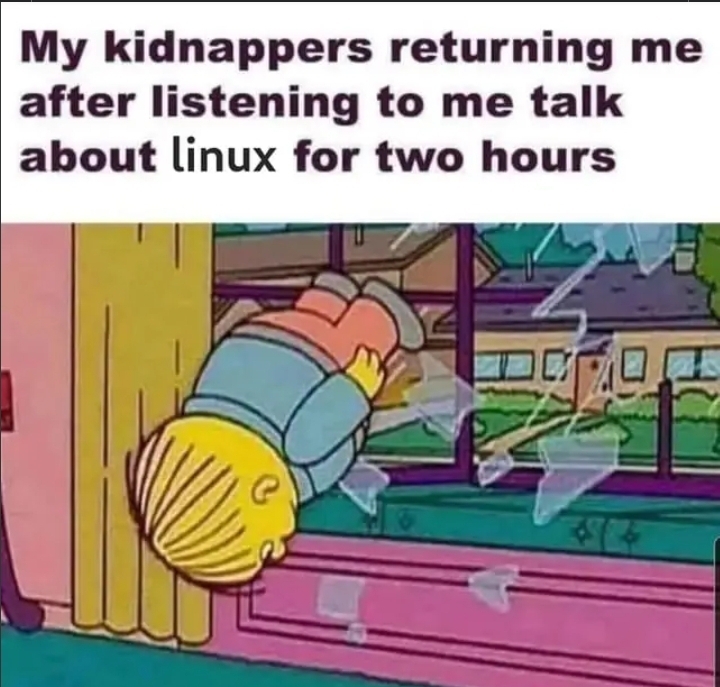this post was submitted on 08 Nov 2024
614 points (99.4% liked)
Memes
45655 readers
2515 users here now
Rules:
- Be civil and nice.
- Try not to excessively repost, as a rule of thumb, wait at least 2 months to do it if you have to.
founded 5 years ago
MODERATORS
you are viewing a single comment's thread
view the rest of the comments
view the rest of the comments

Since we’re here
Stallman, begging to be defenestrated.
That’s not even true, because they don’t all have a GNU userland.
It used to be true. Stallman didn't anticipate the GPL hate coming from big corporates like cloud providers. Literally the major reason why Alpine and Android are the way they are.
That’s at least partially true, perhaps even predominantly, but there’s also the desire to have very lean distributions for containterization, and GNU is comparatively “bloated,” for lack of a better term.
So for Android, the story is that Google really wanted to be able to keep the userland private whenever that fit their corporate agenda. Granted, they did take the time to modernize things and slim things down for mobile devices.
As to the containerization thing: I don't completely buy the bloat argument when it comes from the same kinds of people that think it's a good idea to split applications into a million microservices, each running in their own container. What I do buy is managers worrying whether they need to release their super-secret proprietary code because they included a GPL'd component. Business distros are afraid include e.g. Ghostscript these days because Google T&C say they don't want any AGPL software running in their cloud. I also know that engineers on regular distros have spent time trimming dependencies down to match Alpine, so you can get regular distros almost as small as Alpine images.